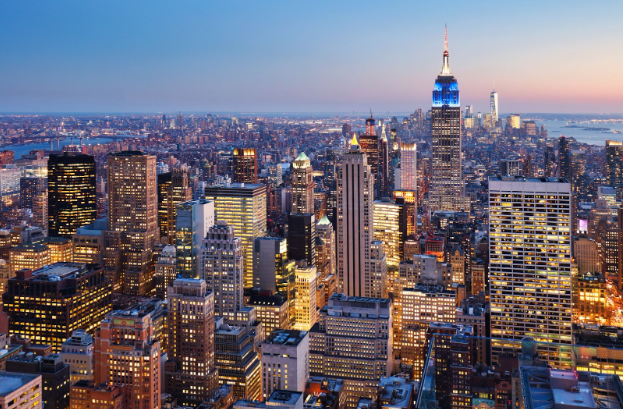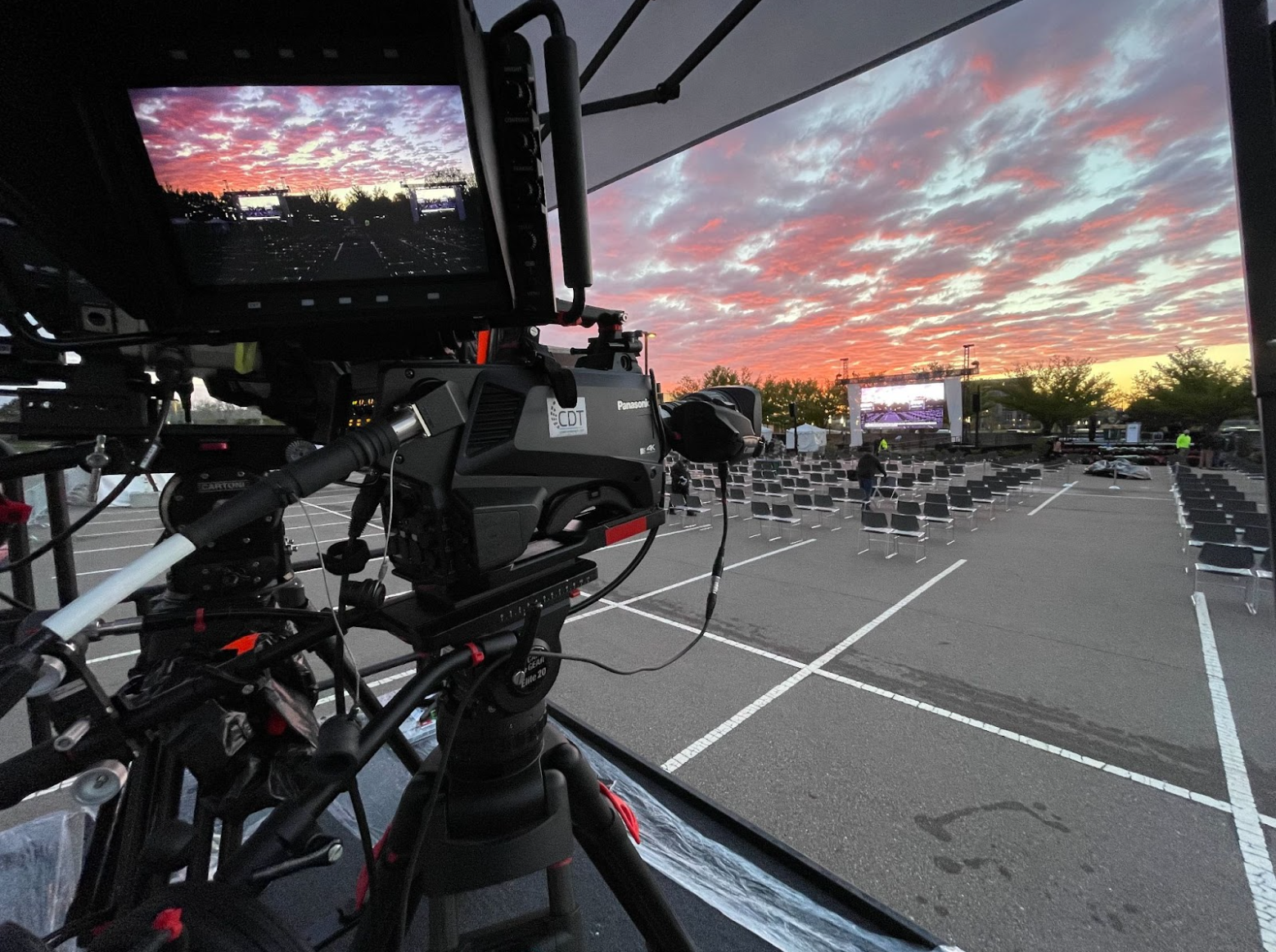



Your Guide to Event Production in New York
New York State offers an unparalleled backdrop for events of every scale and style. Whether you're planning a corporate conference for 500 attendees in Midtown Manhattan or an intimate product launch in Brooklyn, success depends on partnering with an event production company that understands the nuances of event production in New York. This comprehensive guide will walk you through everything you need to know about producing corporate events in New York State, from venue selection and logistics to vendor management and regulatory compliance.
Understanding New York's Diverse Event Landscape
New York City: The Ultimate Event Destination
New York City remains the crown jewel of event destinations, offering world-class venues, unmatched cultural attractions, and infrastructure designed to handle events of any magnitude. The five boroughs each offer distinct advantages:
Manhattan provides iconic venues like the Jacob K. Javits Convention Center, prestigious hotels, and unique spaces from rooftop terraces to historic landmarks. However, logistics can be challenging with limited loading access, strict noise ordinances, and premium pricing.
Brooklyn has emerged as a creative alternative with converted warehouses, artisanal venues, and a more relaxed regulatory environment while maintaining easy access to Manhattan.
Queens offers excellent value with modern facilities, diverse cultural venues, and proximity to major airports, making it ideal for international events.
The Bronx provides unique venues like Yankee Stadium and the Bronx Zoo, along with competitive pricing and growing event infrastructure.
Staten Island offers scenic waterfront venues with Manhattan skyline views, often at more accessible price points.
Upstate New York: Hidden Gems and Natural Beauty
Beyond the city, New York State offers exceptional event opportunities:
Hudson Valley features historic estates, boutique hotels, and scenic venues perfect for corporate retreats and luxury events.
Finger Lakes region provides world-class wineries, lakefront properties, and destination venues ideal for multi-day conferences and incentive programs.
Adirondacks offer rustic luxury and outdoor event opportunities in one of the nation's largest protected wilderness areas.
Capital Region around Albany provides government-focused venues, university facilities, and convenient access for statewide events.
Venue Selection: Matching Space to Vision
Capacity and Layout Considerations
New York venues range from intimate 50-person spaces to massive convention centers accommodating 50,000+ attendees. Key factors to consider:
Flexible Configurations: Look for venues that can adapt to different event formats, from theater-style presentations to networking receptions.
Technology Infrastructure: Ensure venues can support your AV needs, including high-speed internet, adequate power distribution, and modern presentation systems.
Accessibility: New York's strict ADA compliance requirements make accessibility a critical factor in venue selection.
Loading and Logistics: Urban venues often have limited loading dock access and specific delivery windows that can impact setup schedules.
Unique New York Venue Categories
Historic Landmarks: From the New York Public Library to Ellis Island, landmark venues offer prestige but require specialized permitting and production approaches.
Cultural Institutions: Museums, galleries, and performance spaces provide sophisticated backdrops but often have strict guidelines for event production.
Rooftop and Outdoor Spaces: Weather contingency planning is essential, and many outdoor venues have seasonal availability limitations.
Industrial Conversions: Former warehouses and factories offer blank canvases for creative event design but may require additional infrastructure investments.
Navigating New York's Regulatory Environment
Permits and Licensing
New York's multi-layered regulatory environment requires careful navigation:
City Permits: Events in NYC may require special event permits, particularly for outdoor activities, street closures, or events exceeding certain attendance thresholds.
Liquor Licensing: Temporary liquor licenses have specific requirements and lead times, varying by municipality and venue type.
Fire Department Approvals: Large events often require Fire Department inspections and may have restrictions on decorative elements, exit configurations, and occupancy limits.
Noise Ordinances: Strict noise regulations, particularly in residential areas, can impact entertainment options and event timing.
Insurance and Liability Requirements
New York venues typically require comprehensive general liability insurance, often with high minimum coverage amounts. Additional considerations include:
Vendor Insurance: All contractors and vendors must carry appropriate insurance and be properly licensed.
Weather Insurance: For outdoor events, weather insurance can protect against significant financial losses.
Cancellation Coverage: Given the high costs associated with New York events, cancellation insurance provides important protection.
Logistics and Transportation Challenges
Urban Event Logistics
Loading and Setup: Limited loading dock access in Manhattan requires careful coordination of delivery schedules. Many venues have restricted delivery windows and may charge premium rates for after-hours access.
Parking and Transportation: Guest transportation planning is crucial, with considerations for public transit access, parking availability, and potential traffic impacts.
Storage Solutions: Limited on-site storage at many venues may require off-site warehousing and just-in-time delivery coordination.
Vendor Access: Union regulations at certain venues may impact setup schedules and require specific contractor credentials.
Statewide Considerations
Travel Distances: Events in upstate New York may require guest transportation coordination and overnight accommodations.
Seasonal Access: Weather can impact travel and logistics, particularly for winter events in mountainous regions.
Local Resources: Rural areas may have limited vendor options, requiring coordination with suppliers from urban centers.
Vendor Management and Local Partnerships
The Importance of Established Relationships
Success in New York's competitive event market depends heavily on strong vendor relationships. Established production companies bring:
Preferred Vendor Status: Access to premium suppliers and preferential scheduling during peak event seasons.
Negotiating Power: Volume purchasing relationships that can significantly impact event budgets.
Quality Assurance: Vetted vendor networks with proven track records in demanding New York event environments.
Emergency Resources: Backup options and rapid response capabilities when issues arise.
Key Vendor Categories
Audio/Visual Production: New York's sophisticated audiences expect high-quality AV production. Local AV companies understand venue-specific challenges and technical requirements.
Catering and Food Service: From kosher-certified caterers to farm-to-table specialists, New York's diverse food scene requires knowledgeable coordination.
Transportation: Ground transportation, parking management, and logistics coordination require local expertise and established relationships.
Entertainment: Access to world-class performers, speakers, and entertainment options requires industry connections and booking expertise.
Budget Considerations and Cost Management
Understanding New York Premium Pricing
Event costs in New York, particularly Manhattan, typically exceed national averages by 25-50%. Key budget factors include:
Venue Costs: Premium locations command premium prices, but value can be found with strategic venue selection and flexible timing.
Labor Rates: Union labor requirements and higher wage scales impact setup, service, and breakdown costs.
Logistics Premiums: Limited access, parking challenges, and urban restrictions create additional costs that must be factored into budgets.
Vendor Minimums: Many premium vendors have minimum order requirements that may exceed smaller event needs.
Cost Optimization Strategies
Off-Peak Timing: Events scheduled during slower periods can achieve significant savings on venues, hotels, and vendors.
Hybrid Venue Strategies: Combining Manhattan prestige with outer borough value can optimize budget allocation.
Bulk Purchasing: Experienced production partners can leverage volume discounts across multiple event elements.
Efficiency Planning: Streamlined logistics and vendor coordination reduce hidden costs and maximize budget effectiveness.
Technology and Innovation Opportunities
Cutting-Edge Event Technology
New York's position as a global business center makes it an ideal testing ground for innovative event technologies:
Virtual and Hybrid Integration: Advanced streaming capabilities and virtual attendance options expand event reach while managing venue capacity.
Interactive Technologies: From augmented reality experiences to advanced networking apps, technology can enhance attendee engagement.
Sustainable Solutions: Green event technologies align with New York's environmental priorities and corporate sustainability goals.
Data Analytics: Sophisticated attendee tracking and engagement measurement provide valuable insights for event optimization.
Infrastructure Advantages
Connectivity: World-class internet infrastructure supports bandwidth-intensive applications and live streaming requirements.
Power and Technical Support: Modern venues offer advanced technical infrastructure, while older venues can be upgraded with proper planning.
Mobile Integration: High smartphone adoption and excellent cellular coverage enable mobile-first event experiences.
Seasonal Considerations and Timing
Peak Season Challenges
Spring and Fall: Premium event seasons require early booking and command higher prices across all vendor categories.
Summer Considerations: Outdoor events must account for heat, humidity, and potential severe weather.
Winter Advantages: Lower venue costs and vendor availability, but weather contingency planning is essential.
Holiday and Cultural Calendar
Major Holidays: Jewish holidays, cultural celebrations, and business calendar considerations affect availability and pricing.
Conference Seasons: Understanding industry conference schedules helps avoid conflicts and resource constraints.
Fashion Week and Major Events: Large-scale events impact vendor availability and accommodation costs throughout the region.
Creative Day’s Event Production Services in New York
As a full-service event production company, Creative Day manages every aspect of event production from initial concept development to post-event analysis. Our technical capabilities include advanced AV production, virtual event integration, and innovative attendee engagement solutions. Contact us today to schedule a consultation and discuss how we can bring your vision to life.


